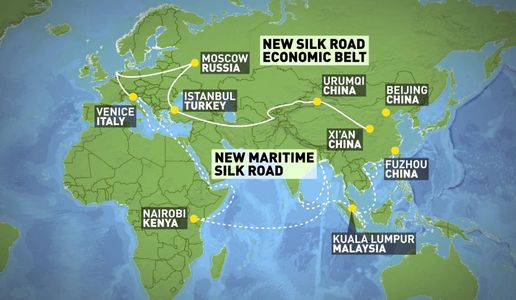Grimes Pens Article on Belt and Road Initiative
William Grimes, Associate Dean for Academic Affairs at the Frederick S. Pardee School of Global Studies at Boston University, published a recent article discussing China’s “Belt and Road Initiative,” (BRI) and comparing the massive regional infrastructure plan to Japanese aid, trade, and investment in East Asia in the 1980s and early 1990s.
Grimes penned the April 15, 2016 article, entitled “The Belt & Road Initiative as Power Resource: Lessons from Japan,” for The Asan Forum.
From the text of the article:
While apparently unprecedented in scale, scope, and ambition, BRI has historical parallels. Several writers have compared BRI to the Marshall Plan, which may sell some newspapers, but the comparison is problematic on several fronts. The Marshall Plan was mostly about reconstruction, not development; there was no such thing as a global production network; and the emerging Cold War politics created clear, politically-dictated geographical bounds to the plan.
A better comparison is with Japan in the 1980s and early 1990s. Japan was a country with a high savings rate and corresponding current account surpluses that was also dealing with an appreciating currency and slowing domestic growth. It was experiencing frictions with major trading partners, and there were some concerns that direct investment by Japanese companies was not welcome in the United States and Europe, especially when it involved acquisition of intellectual property or major brand names. Japanese firms did invest in the United States and Europe, but also began to rapidly expand their investments in East Asia. Given the relative sizes of the economies, Japanese investment in Southeast Asia was particularly noteworthy.
Professor Grimes has spent time as a visiting researcher at the Japanese Ministry of Finance, the Bank of Japan, and several universities in Japan and Australia. He has been the recipient of various fellowships and awards over the years, including two Fulbright fellowships and a book-writing grant from the Japan Foundation Center for Global Partnership. He is an active lecturer in Japan and the United States in both academic and policy venues and has been recognized for his teaching and advising at Boston University. You can read more about him here.
